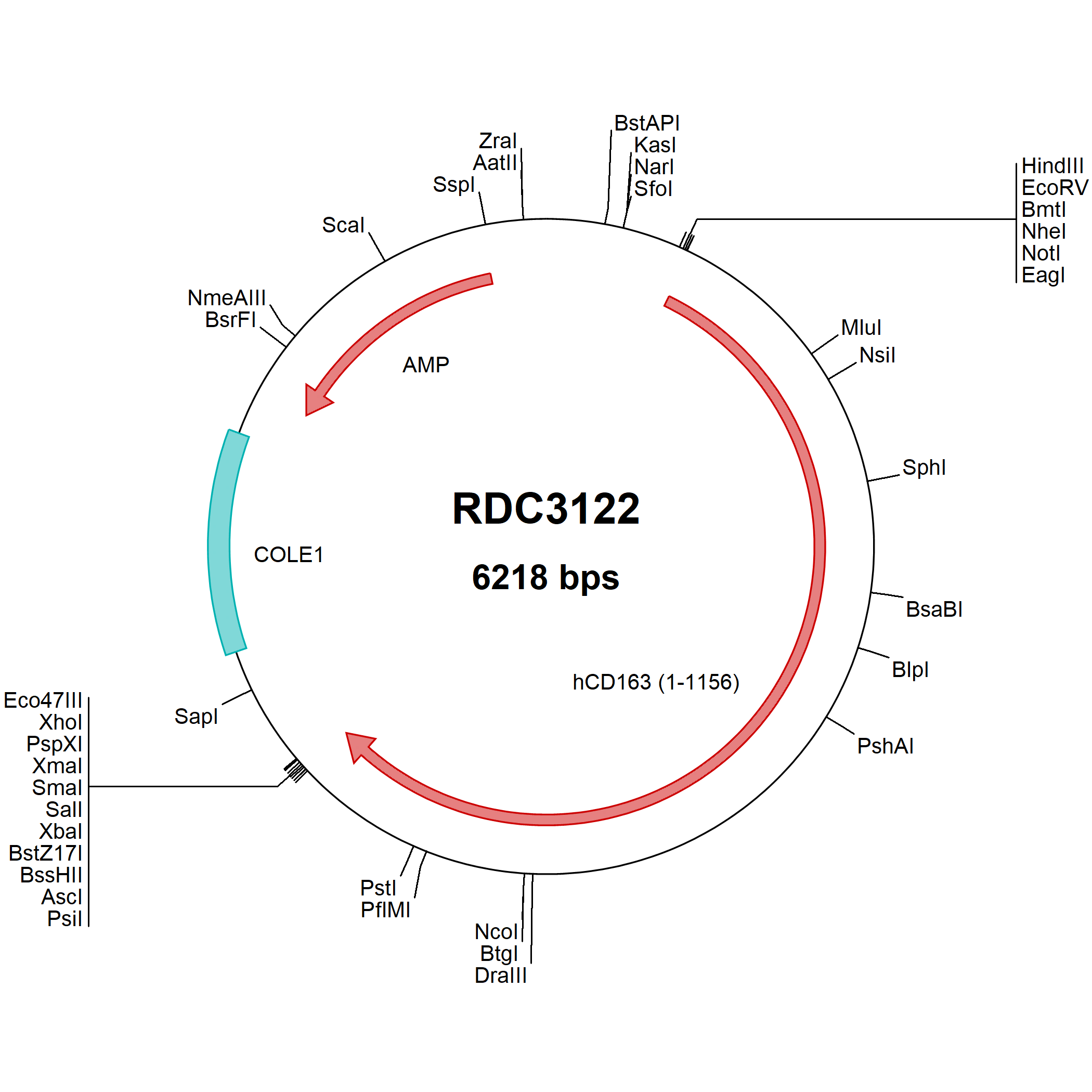CD163: cDNA Clones
CD163, also known as M130 and p155, is a transmembrane scavenger receptor that is expressed on monocytes and macrophages and is inducible by immunosuppressant glucocorticoids and IL-10. A soluble form is shed from the cell surface by TACE or neutrophil elastase mediated cleavage in response to oxidative stress, Prostaglandin F2a stimulation, or the activation of Fc gamma receptors, TLR1, 2, 5, or 6. CD163 mediates monocyte binding to bacteria, leading to the release of inflammatory cytokines. It is essential for the circulatory clearance of hemoglobin-haptoglobin (Hb-Hp) complexes as well as free hemoglobin. It can also mediate monocyte-erythroblast adhesion and promote erythroblast expansion. CD163 binds and internalizes the cytokine TWEAK, and the ratio of soluble CD163 to TWEAK in the plasma is elevated during atherosclerosis.
2 results for "CD163 cDNA Clones" in Products
2 results for "CD163 cDNA Clones" in Products
CD163: cDNA Clones
CD163, also known as M130 and p155, is a transmembrane scavenger receptor that is expressed on monocytes and macrophages and is inducible by immunosuppressant glucocorticoids and IL-10. A soluble form is shed from the cell surface by TACE or neutrophil elastase mediated cleavage in response to oxidative stress, Prostaglandin F2a stimulation, or the activation of Fc gamma receptors, TLR1, 2, 5, or 6. CD163 mediates monocyte binding to bacteria, leading to the release of inflammatory cytokines. It is essential for the circulatory clearance of hemoglobin-haptoglobin (Hb-Hp) complexes as well as free hemoglobin. It can also mediate monocyte-erythroblast adhesion and promote erythroblast expansion. CD163 binds and internalizes the cytokine TWEAK, and the ratio of soluble CD163 to TWEAK in the plasma is elevated during atherosclerosis.

